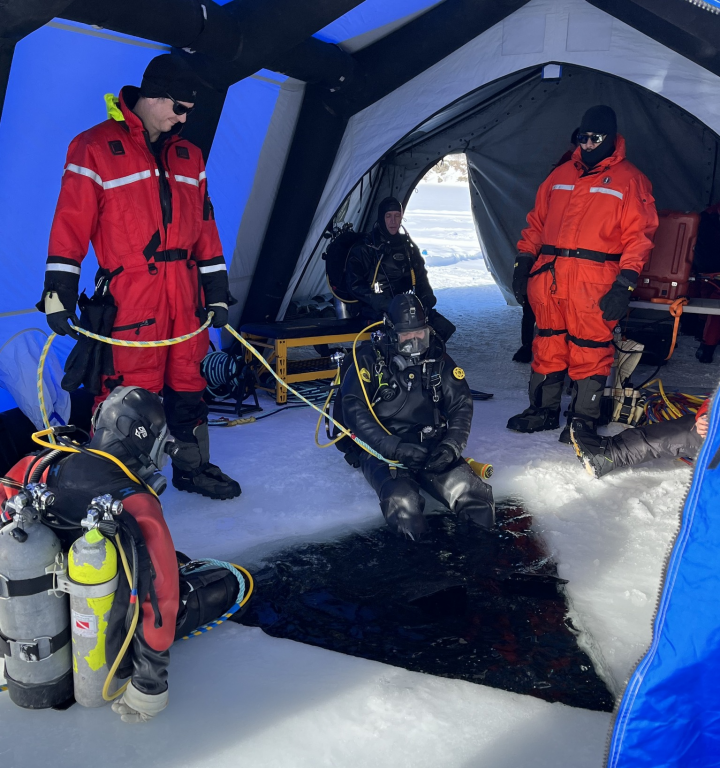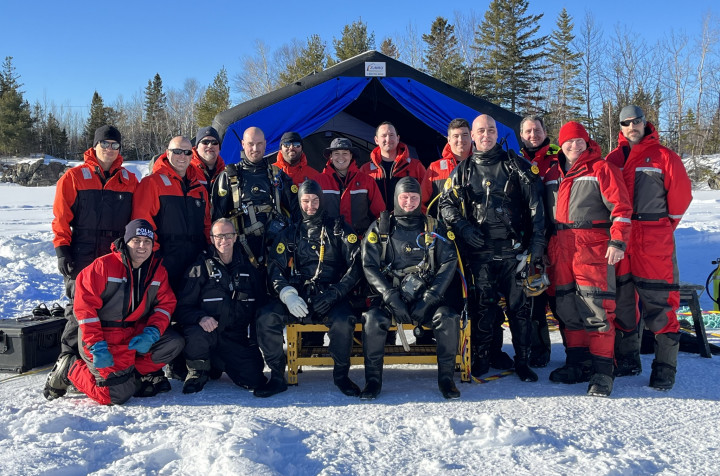Sergeant Raphael Vézina of the Northeast District RCMP recently shared his experience as a member of the Underwater Recovery Team (URT). He has been part of the RCMP dive team since 2006, initially in Nova Scotia's H Division before transferring to New Brunswick's J Division in 2013.
The RCMP established the National Underwater Recovery Training Centre (NURTC) in Nanaimo, British Columbia, in 2005. It is Canada's sole dive training facility for police officers specializing in underwater recovery and forensics. The intensive five-week course covers specialized scuba techniques, evidence recovery, and swift water rescue operations. Divers are required to undergo annual training and recertification.
URT specializes in underwater searches in dark, murky waters with zero visibility. They recover evidence from crimes, using metal detection devices to find items like bullets, cellphones, weapons, vehicles, boats, and planes. URT divers conduct tactile searches to locate individuals as a result of accident or crime and gather evidence from bodies of water such as lakes, rivers, or oceans, aiding investigations by retrieving crucial evidence.
Becoming an RCMP certified diver depends on prior certification and experience. Some team members recently got their PADI certification before becoming understudies, while others had over a decade of diving experience. "Eligibility for the certification course in Nanaimo is based on required diving hours," explained Vézina. "For example, a candidate who didn't meet the hour requirement last year would need more hours to qualify. On the other hand, a diver with 600-700 hours of commercial diving experience could attend the course in Nanaimo. These examples show the varied experiences of individuals seeking RCMP certification as divers."
In February, the team conducted a training exercise in Atlas Park, Pointe-Verte, near Bathurst. The location was chosen for its accessibility and facilities, which are not typically available in real-life scenarios. The team practiced ice rescue techniques, including using a chainsaw to dig a hole, setting up a tent for protection, and practicing underwater diving in icy conditions. This training helps them prepare for remote rescue situations where logistical challenges may arise.
"We have created a triangular access hole for two divers," explained Vézina. "We currently use ropes but have also installed the Service Supplier Diver Equipment (SSAD) for future hazardous operations, like under ice. The SSAD provides divers with unlimited air from the surface, allowing them to stay underwater for longer periods and for safety and quick assistance in emergencies."
Sergeant Vézina shared that his childhood dream of diving led him to pursue a career with the RCMP dive team. However, he emphasized that this career is not suited for everyone, as call-outs can occur at any time, requiring members from various locations to respond.
"The job is not confined to a typical nine-to-five schedule, and each operation presents unique challenges," said Vézina. "During a search, it's common for the community to show up to support the team and the victim's family. The family is always on the shore, anxious for us to find their loved one's body. The only comfort we have is that we are helping to bring closure to the families."
"We are familiar with each other in the Maritimes," he explained. "However, we use standardized gear like buoyancy compensating devices (BCD), regulators, and dry suits nationwide, enabling smooth cooperation among different divisions and sites across Canada." The divers find joy in their work despite the difficult underwater conditions and intricate equipment. Vézina commends his team for their unity and friendship, which is fostered through regular training sessions.

